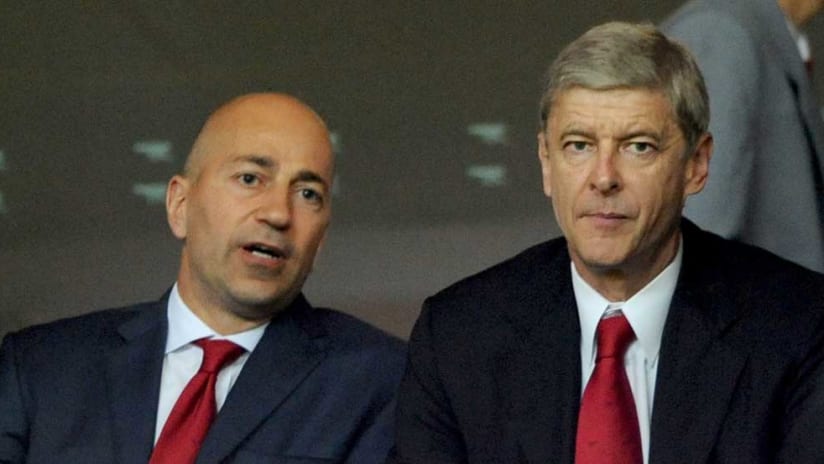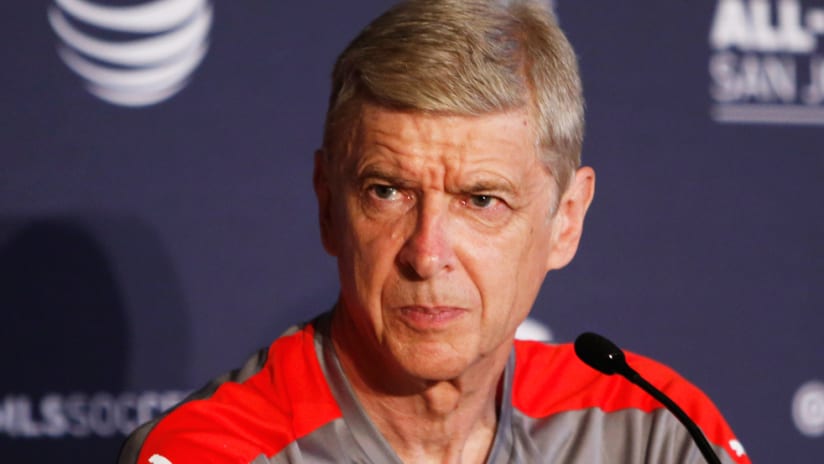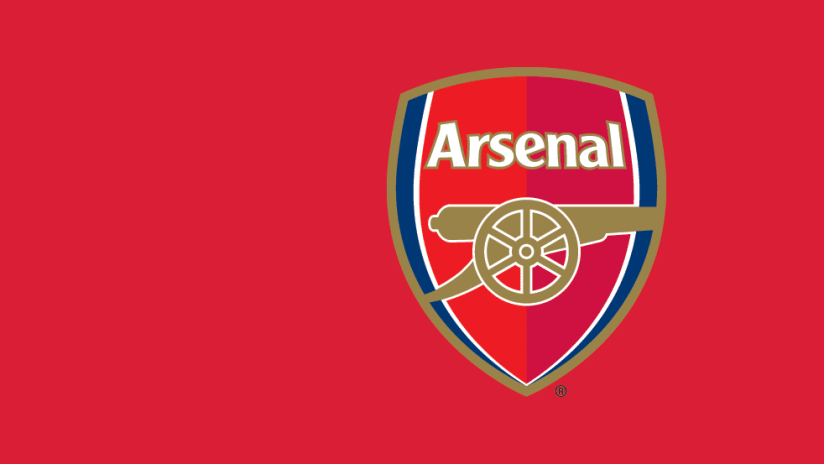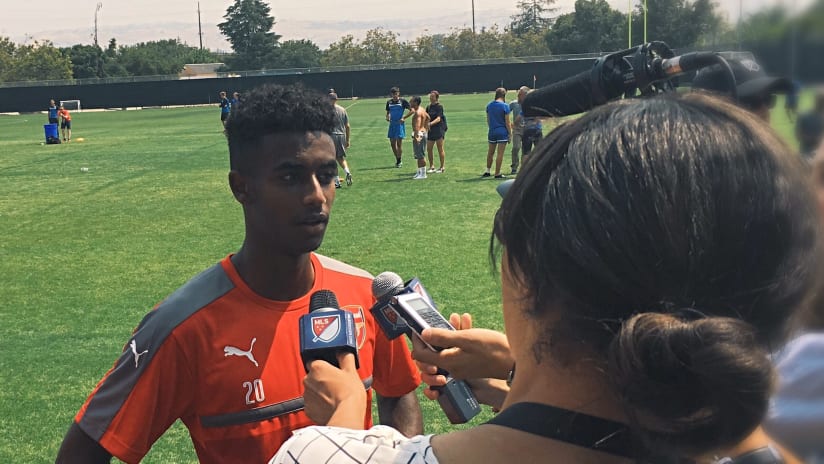SUBSCRIBE TO THE PODCAST:iTunes | Stitcher | RSS FEED | DOWNLOAD
Ivan Gazidis is the chief executive of Arsenal FC, which will take on the best of MLS in
the 2016 AT&T MLS All-Star Game Thursday in Avaya Stadium in San Jose
(7:30 p.m. ET, ESPN, UniMas, TSN, RDS). But Gazidis also was one of the founding executives of MLS and served as the league's deputy commissioner before taking the job at Arsenal.
Gazidis spoke with MLSsoccer.com Senior Editor Andrew Wiebe and David Gass on
ExtraTime Radio
about a number of subjects, in an interview that you can listen to above. This is Part 1 of the transcript of that interview, focusing on Gazidis' time in MLS and the league's development since he left for the Premier League in 2009. Part 2 will focus on his time with Arsenal.
AW: So many European clubs come to the United States in the summer, but Arsenal hasn’t generally been among them. Why this year, why the AT&T MLS All-Star Game, why did this opportunity make sense for your club?
IG: We’ve been trying to put this together for awhile. Given my background with MLS, it’s
particularly exciting for me to be involved in the All-Star game. A couple years ago we had a
short preseason and we were able to make the short hop out to New York, but this year we
really worked hard with the league in trying to secure this opportunity with a slightly longer
preseason. We were able to put it together for two games, including the All-Star game at Avaya
Stadium in San Jose, and we’re really excited to be participating at last.
Do you follow what’s going on in North America and MLS from England? Do you keep in touch with the people you worked with previously at the league?
I follow it very closely. I have so many great friends in MLS, in one capacity or another. The
development of the league has just been wonderful to see and to follow. It just continues to
grow, and the future looks brighter and brighter.
I’m imagining you watching the game in a box at Avaya Stadium on Thursday – perhaps with Commissioner Don Garber, Mark Abbott and other old colleagues and friends – and I wonder if there will be a friendly wager of some sort. That’s sort of an American tradition between mayors ahead of playoff games, but will anything be on the line?
[chuckles] You know, it’s one of the restrictions we have: we’re not allowed to bet on football
matches. Perhaps there will be some wagers on something else completely. Believe me, there
will be plenty of pride at stake.
Let’s reminisce a little bit. What’s your favorite memory from the MLS All-Star games of years past?
I remember the old All-Star format. Our first game was in Giants Stadium, where we played an
MLS All-Star team against the World All-Star team. Tab Ramos scored a great goal, and it was an
incredible event. But the format has developed since then and now MLS is playing against
teams from around the world. I think it’s fantastic because it’s a unique opportunity that exists
in soccer to test yourself against some of the world’s best. I love the format, I love the
development of it. Great memories all along the way. I have to say that the MLS team has
always done very very well in these match-ups.
Take me back to 1994 and that time in your life. What did the opportunity to help build this league from scratch mean to you? How did you get involved?
It was an unbelievable opportunity for me. Mark Abbott, who is now the president of Major
League Soccer and the deputy commissioner, was a friend of mine and was involved with Alan
Rothenberg with the inception of the league. Mark asked me whether I’d be interested in
helping out with that. I was not very bright, but I was smart enough to know a great
opportunity when I heard one. I jumped, and within two weeks I had moved from London to
Los Angeles. Mark and I occupied a very small place in a corridor in the 1994 World Cup offices
along with a small group of people who were involved in trying to put together this thing that
we called Major League Soccer.
Where did you start? How did you begin the process?
Looking back on it now, with the benefit of all the time that has passed, I think had we fully
appreciated the magnitude of what we were trying to do and how this thing would develop and
what it would become, we would have been very intimidated by the size of the challenge. We
had one major advantage, which was that we were starting with a blank sheet of paper. Soccer
had been through many iterations in the United States, and at each stage a domestic league
had not been able to succeed, certainly at the level that fans’ expectations would want it to.
Our biggest success was getting the most incredible group of owners together to buy into a
business plan which really was a long-term plan for the growth of the game. It required a
significant financial commitment on their part but also a real emotional commitment. The
biggest success, looking back on it, that we had and the reason MLS has developed the way that
it has is, in my view, the strength of the ownership group.
If you were asked in 1994 what MLS would look like in 20 years, what would you have said?
I would have had no idea how the game has grown. We believed that there would be
demographic changes in the United States that would push soccer forward, but I would not
have believed that we would have seen the kind of commitment we have from ownership in
building new stadiums specifically for the game. I would not have believed – remember, 1994 is
before the internet – the global culture of soccer would have connected with an American
audience and that we would see the kind of atmosphere that you have in MLS stadiums, which
is the equivalent to stadiums anywhere you want to go in the world. This connection, this ease
of connection, the access that young people in particular have to watching the best players and
getting information about the game.
Remember, back in 1994, if you were a 12-year- old playing soccer, you were dependent on a
55-year-old sports editor on the information that you read. You weren’t able to watch a player
like Cristiano Ronaldo because there was no broadcast avenue. Your only access was through
linear broadcasts and the major channels. Now we have so much more distribution of the
game. If you’re a 12-year-old today, you can get access to any game you want to watch. There
are no barriers. That has really activated, in my view, the interest in soccer in the States and the
connection that people feel to the world’s game. That’s been fantastic, I think, for clubs like
Arsenal in the Premier League, which are growing in the States, but I also think it’s been
fantastic for Major League soccer because Major League Soccer is now part of the global
conversation.
You joined Arsenal at the beginning of 2009. At that time, Seattle was just coming into the league as the 15th team. Now we’re talking about expansion to 24 teams and Commissioner Garber says he’d like MLS to be one of the world’s best leagues by 2022. What do you make of that goal and that ambition?
I think it’s fantastic that the league is setting high goals for itself. I think that it should do that. I
think it has one of the strongest ownership groups in sports with the capability to drive towards
that goal. I think you’ve got a fanbase in the United States that’s deeply connected and engaged
and passionate about the game. There are a lot of things in place in the US. I left in 2009.
Perhaps it’s coincidental, but the way the league has developed even in the short space of time
that I’ve been over here [in England] has been incredible to see. You mention Seattle, just seeing the size of
the audiences … I think Major League Soccer is averaging more than 21,000 fans a game now.
That makes it the seventh biggest league in the world today. When Don talks about the goal of
becoming one of the world’s best leagues, Major League Soccer is already well on the path to
achieving that goal.
What do you use in that conversation as the standard for measuring that? You work in the Premier League and are on different boards throughout UEFA and the FA. How do you judge whether a league is one of the world’s best?
That’s a good question, and of course there are lots of different prisms that you can look at it
through. How many fans follow, are interested, and are engaged and passionate about the
league is a critical piece of that. And another critical piece is the standard of play. I think MLS
has all the pieces: the strength of the ownership, the quality of the stadiums, the engagement
of the fans. All of these things are abundantly in place in the United States [and Canada].
I think the next phase of growth for MLS has to be the focus on what happens on the field and
how they develop that so people can know that they’re watching the best soccer in the world.
That’s challenging. There’s no question about that. There’s more and more competition for the
best players in the world. But what we’re seeing with MLS is, I think, two different things. One is
some top-class players – and not just players at the end of their careers – choosing MLS.
Underneath that, and maybe more importantly, is going to be the development of American
players.
There are so many kids playing the game across the United States. In the end, it’s the
development of domestic talent that provides the platform for everything else. So MLS needs
to continue, as it has been, focusing on it’s academy system and developing young players to
provide the pipeline of talent that it’s going to need as it goes through expansion because so
critical for MLS in the next phase of its development is what happens on the field.













